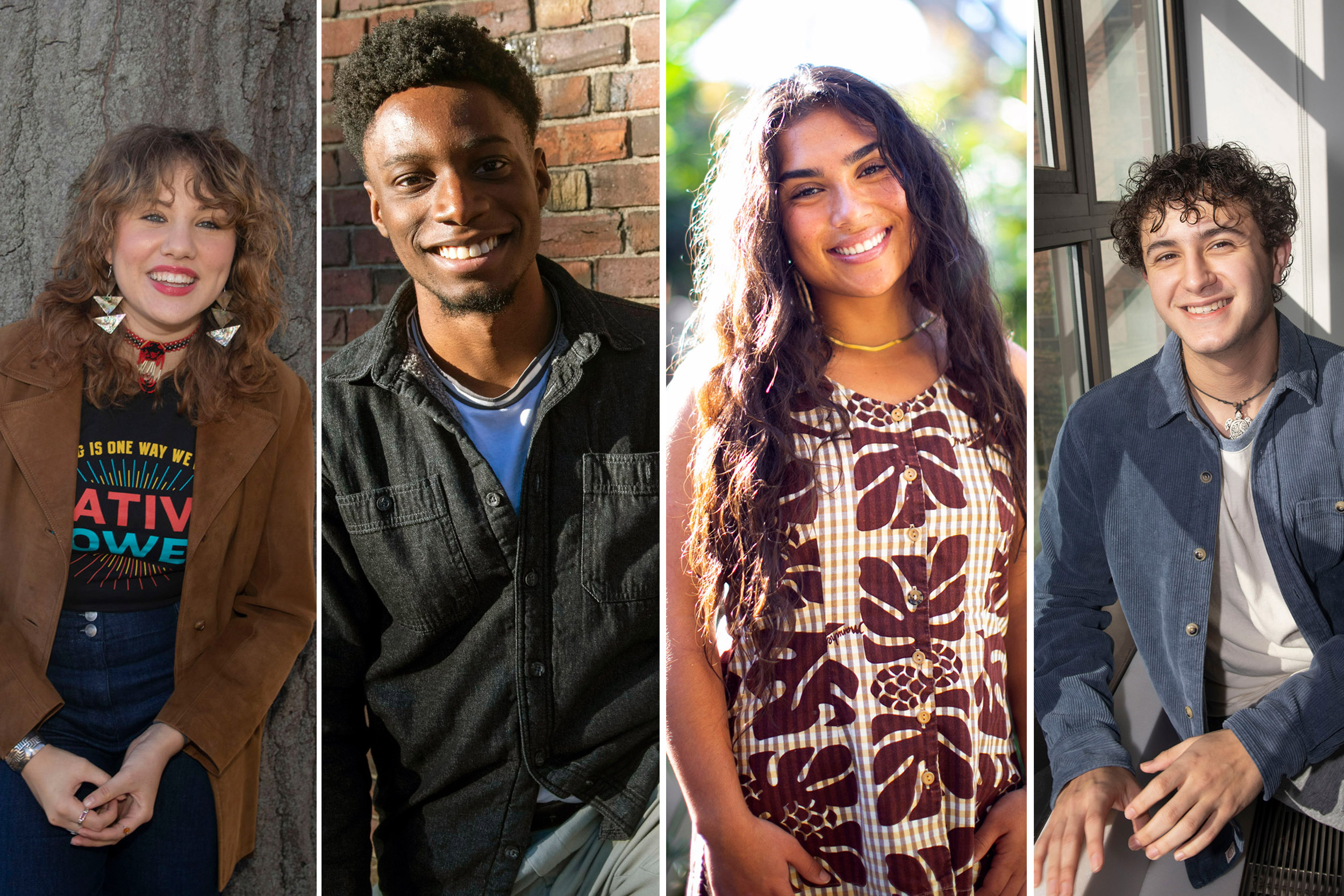
Photos by Kris Snibbe, Jon Chase and Stephanie Mitchell/Harvard Staff Photographers
Climate change in urban America, Hawaii, Puerto Rico, Calif. reservation
Four students recount stories of changed life, efforts to fight back
For students taking part in Wednesday’s event “Our Climate Change Stories,” the fight against global warming is everybody’s business. To drive that point home, several student-led environmental groups joined forces to organize an event highlighting the personal stories of seven College students who joined the fight in their own communities. The Gazette spoke with four of them. The interviews have been edited for length and clarity.
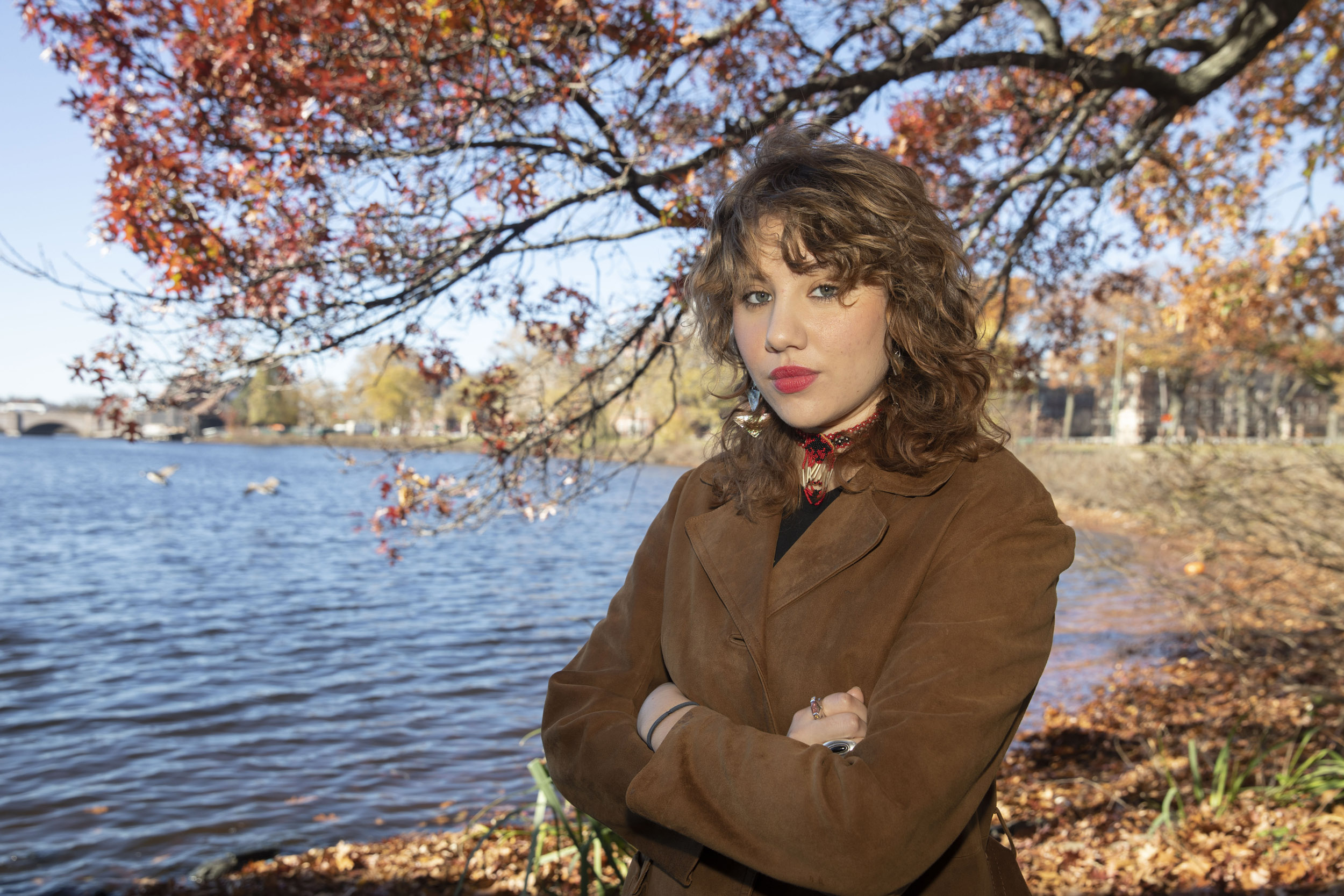
Kris Snibbe/Harvard Staff Photographer
LeMonie L. Hutt ’26
Concentration: History of Science
I’m a member of the Hoopa Valley Tribe in Northern California, and I live on the reservation, which is about an hour away from an actual Target or Costco, over two mountains. What’s special about the Hoopa tribe is that we’ve never stopped practicing our traditional ceremonies. I grew up in a culturally rich, matriarchal society. We have a woman’s coming-of-age ceremony to celebrate a woman’s coming into a leadership role in the community. We had a lot of women serving on the tribal council; my mom herself also served on the council.
Our population is small: 2,000 people. And when I was younger, my family and other families used to rely a lot on natural resources. A lot of our food would come from the environment around us. But that slowly started to dwindle away as I got older because of climate change and the use of our waterways by big agricultural farms. Our water resources also decreased due to fires, and since our culture is so intertwined with our land and natural resources, it has become a lot harder to keep our culture. It is hard to make baskets or jewelry because natural resources are becoming scarce. For the younger generations, it has been hard to grow up without having access to those resources that can allow them to express themselves through culture and art. We see that playing out in a mental health crisis among students because of threats to their culture, which is being taken away.
In my community, there’s a huge uprising in starting to advocate for tribal ecological knowledge to be recognized in the realm of science, especially with cultural burnings, an Indigenous practice that prevents wildfires by starting fires, but also with our gathering practices, including pruning and tending the land, which result in a healthier ecosystem. I was influential in developing a team of my tribe that developed traditional ecological knowledge curriculum to be implemented into the system locally.
We are beginning, as Indigenous people, to be recognized for our role in the climate crisis solution. As we’re becoming aware of how bad the wildfires are in California, scientists and people in general are starting to realize that Indigenous people have been here since time immemorial and that we know how to take care of the land. In that way, we’ve gotten a larger platform for our voices, even though it was caused by extreme environmental damage.
I became an advocate for clean water after seeing my mother and my people protest the environmental damage caused to the Hoopa reservation from the dams on the Klamath and Trinity rivers. I was 8 years old when I gave a speech to the California State Water Board. Water rights is about protecting my culture and my way of life. When I was first starting in my advocacy journey, I thought that being an advocate meant joining political debates, going to California State Water Board meetings, and writing op-eds. But I realized that advocacy was also about taking up space, continuing to practice our culture, and showing that we’re still here and what we value as a people.
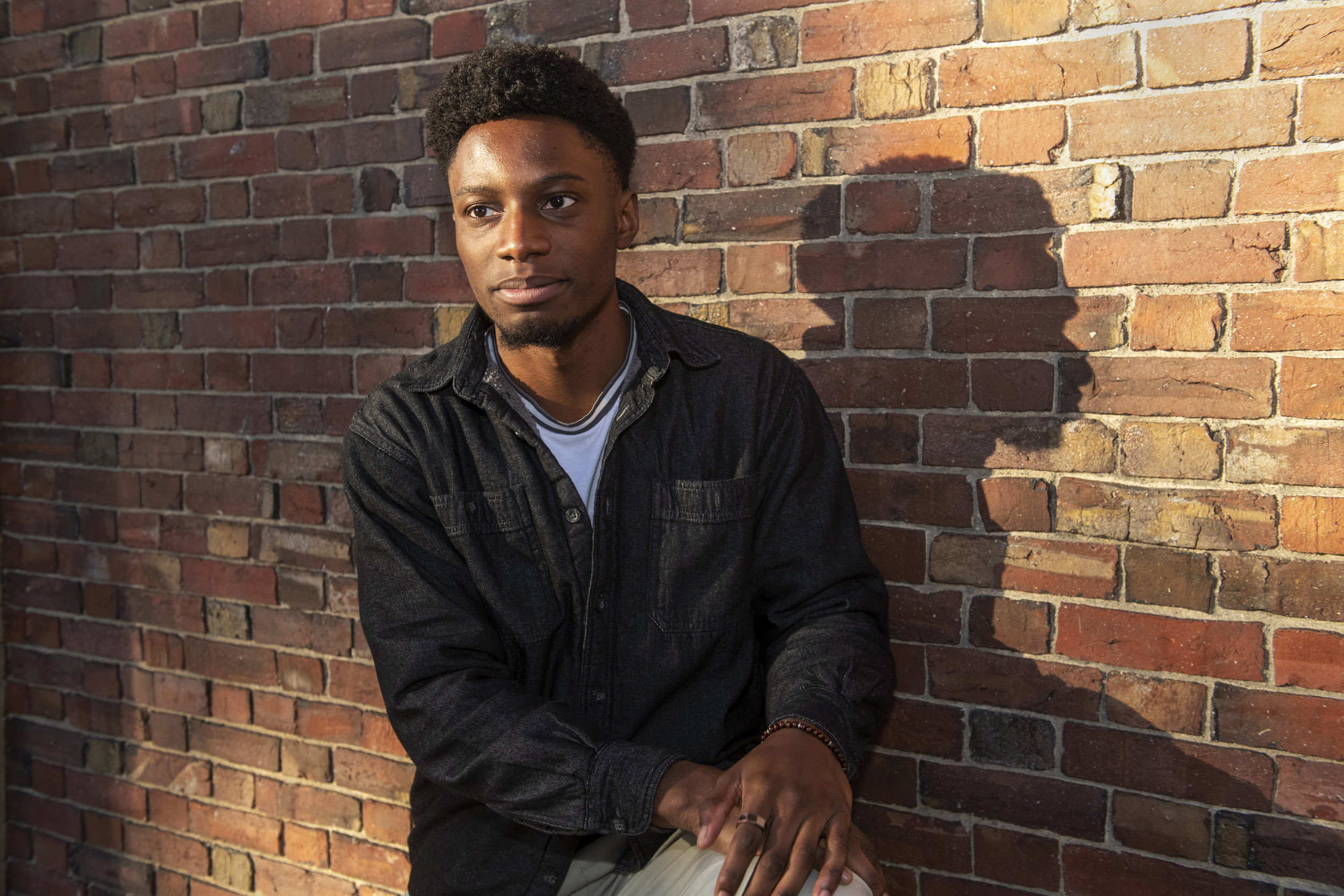
Jon Chase/Harvard Staff Photographer
Osasenaga Idahor ’25
Concentration: Environmental Science and Public Policy
I was born and raised in Hyde Park, Massachusetts, and that has defined a lot of what I want to do and why I want to do it. Growing up in Hyde Park, I didn’t notice anything being wrong with having like a power plant down the street or the fact that my neighborhood had many manufacturing plants and factories. It was only in high school that I learned that people of color disproportionately live close to power plants and toxic and waste facilities.
There are two moments that galvanized me to act against climate change. I went to Boston Latin High School and took the bus every day to school. I would walk over piles of trash and crabgrass on the way to the bus stop or train station, and in a matter of minutes, I’d arrive at Longwood, a rich area of Boston with lots of hospitals around, where the air is cleaner, and the focus is on public health. That image of a whole different world five miles away in the same city always plays in the back of my mind. That is how environmental injustice shows up for me.
The other moment took place during quarantine. I wanted to raise awareness in my community about environmental injustice. I thought of putting labels on trash cans in my neighborhood to encourage people to not litter, but I realized that it’s not so much about people not caring about their living environments. It’s just that people in certain low-income communities are jaded toward environmental injustice. I realized that I needed to do much more than that.
This summer, I launched a podcast to focus not so much on the global crisis, but on the local scene, where we have the most power to make changes with ripple effects. When we hear about global warming and how it’s threatening polar bears’ existence in years to come, we may feel discouraged and lose sight of how it’s affecting us right now and right here. We lose focus of the local issues and of the small victories that happen in our own communities. Some people think that Hyde Park doesn’t have a climate justice problem because it has lots of trees, but others believe that trees and woods should be preserved. Recently, a group of Hyde Park neighbors protested the sale of Crane Ledge Woods, a 24-acre forest, for a housing development. The project has been delayed for now. There’s so much that is still to be done, but we must turn to our own communities and start making changes there.
I’m also working on becoming a physician because of my interest in science and climate, specifically around human health. The health impacts of climate change are vastly felt in marginalized communities, which have higher heatstroke and asthma rates. Environmental justice is part of human health. Because of my experience and my relationship with growing up in a neighborhood that had to bear disproportionately the impacts of climate change, I think I can be somebody who not only advocates for but can relate to those communities.
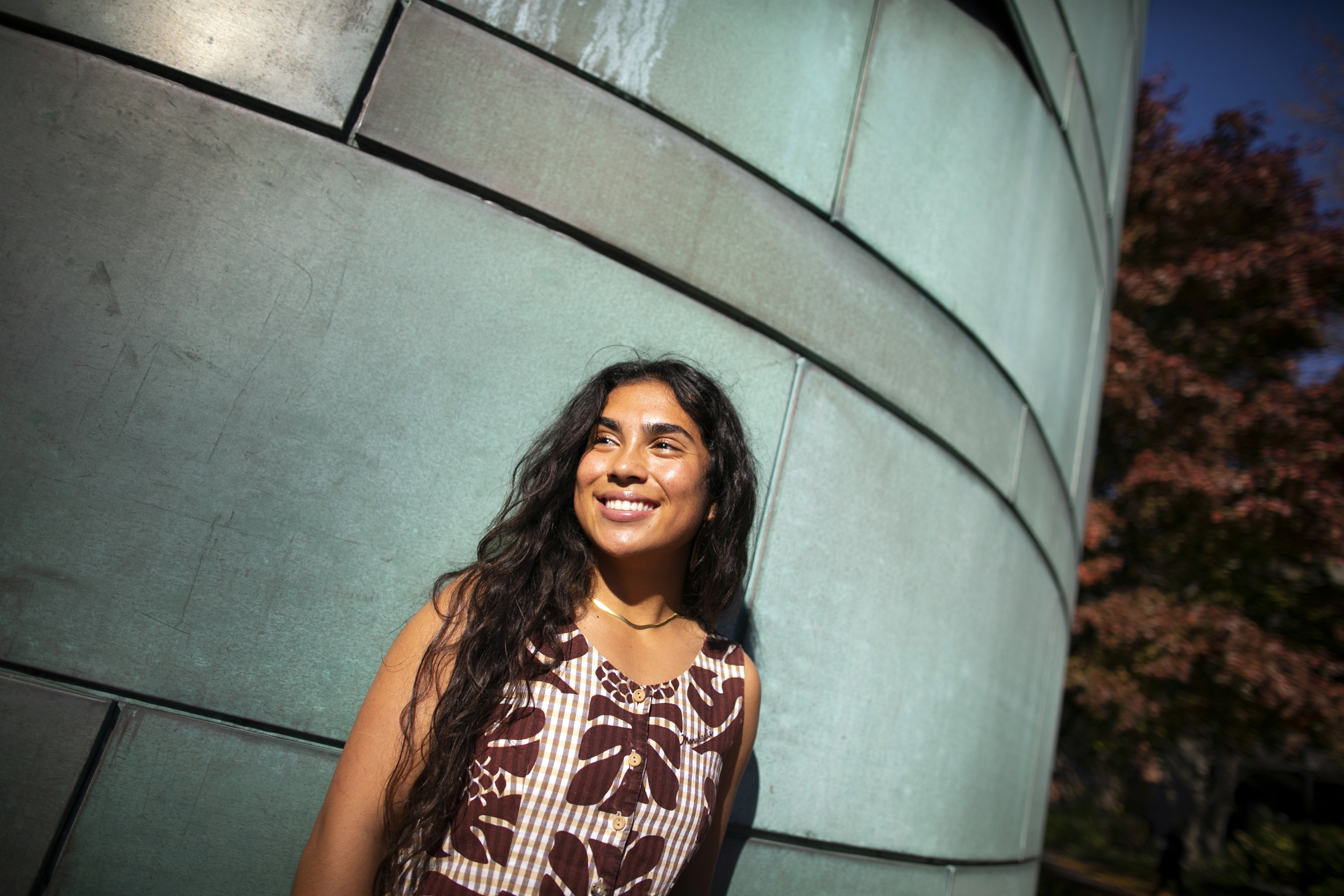
Stephanie Mitchell/Harvard Staff Photographer
Kiani Akina ’25
Concentration: Environmental Science and Public Policy
I live on the north shore of Oahu, Hawaii, in a very small town called Kahuku. Our population is 2,000. We have one stoplight. We used to have a gas station; now it’s in the town over. Our sense of community identity is strong.
As far as the impact of climate change in my community, I’ve seen the way beaches and landscapes have changed tremendously from when I was little to now. I remember that whenever we would go to a beach we hadn’t been to in a while, my dad would say, “This looks so different than it did when I was younger.” I would find shells, and my parents would be, “You can look at them now, but make sure you put them back because if you take it, there’s not going to be something for your kids to look at.” I went back home this summer, and when I took my 6-year-old sister to go dive with me, I couldn’t show her all the wildlife I used to see under the water. She’s seeing a fraction of the beauty I got to see. I now wonder, will there be anything left for my children to see?
I’ve also seen the effects of environmental injustice in the proposal for a 30-meter telescope to be built on Mauna Kea, which is a sacred place for native Hawaiians, and more recently, the U.S. military’s leak of jet fuel into Oahu’s main aquifer, which poisoned the water and made people very sick. There is also a lot of nuclear testing in the Pacific, and many people have been forced to relocate.
Native Hawaiians, and Indigenous folk everywhere, have a deep connection with the land and the water, and this is hard for other people to understand. For us, the land and water are living beings, sort of relatives that hold lots of stories that are so connected to our culture and identities.
Hawaiian lives are deeply impacted by climate change and over-tourism, which is not sustainable and is also harmful to the environment. Indigenous people are forced to face the worst and most harmful impacts of climate change when we contribute the least to it. We need to ensure that we incorporate our indigenous ways of life and indigenous knowledge into climate policies to ensure that future generations remain here and enjoy this relationship they are meant to have with the land.
My hope is that governments implement climate policies that incorporate and include Indigenous voices and Indigenous perspectives because the way our ancestors functioned and lived their lives was sustainable. Whatever my work is in the future, I want to contribute to climate policy throughout the Pacific to help make sure that my community and other Indigenous communities are heard and that the policies we’re making are going to be beneficial for them. I also want to work in environmental law so I can help Native Hawaiians get land back and help contribute to Hawaiian sovereignty.
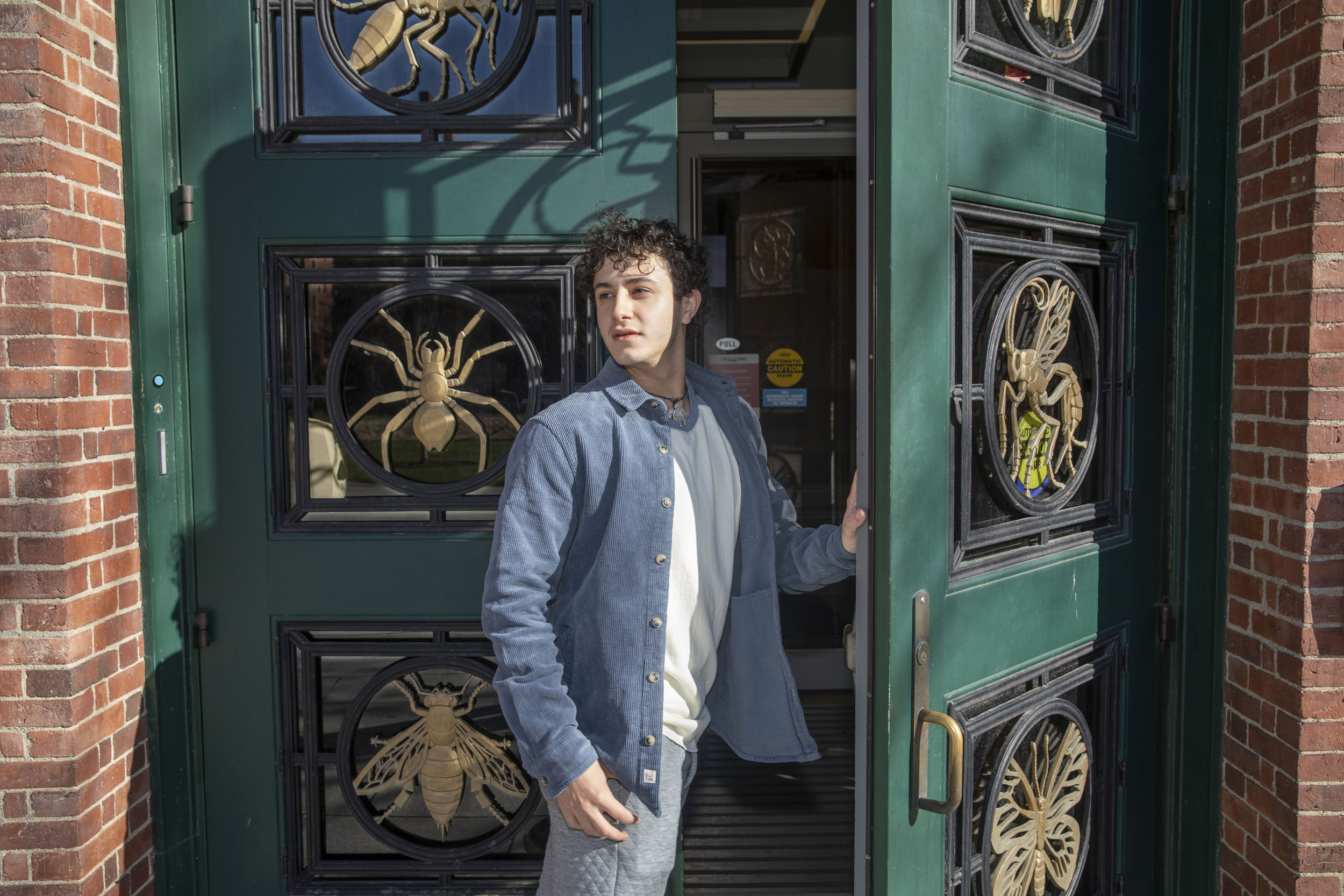
Kris Snibbe/Harvard Staff Photographer
Ricardo Marrero-Alattar ’25
Concentration: Organismic Evolutionary Biology and History of Science with a secondary in Computer Science
I grew up in Puerto Rico. In the past five years, we faced hurricanes, earthquakes, and COVID. There is no question that the worsening climate on our planet is making it more likely for natural disasters to occur, and I want to make clear the stark difference between the impact of climate change in the Global North and the Global South. What we underestimate, in the U.S. and the Global North, is how climate change worsens natural disasters. To us in the Global North, it means a couple more hurricanes, but for the Global South, where most developing countries are located, natural disasters are not ephemeral. They become significant; their gravity multiplies exponentially. Climate change is worse for the Global South because they are less able to recover from the increased volume and gravity of the impact of natural disasters.
Puerto Rico was badly hit by Hurricane Maria five years ago, and people are still suffering to this day because of it. It is because of the catastrophic system failure that took place in the wake of Maria: All systems failed and became too weak to recover, and economically, it made it hard for the island to rebuild. Once the infrastructure is weakened, as well as its ability to recover, the island becomes more vulnerable to the next natural disaster. We just had Hurricane Fiona, which was a Category 1 hurricane, and we felt the damage as if it were Maria, which was Category 5.
When Fiona hit Puerto Rico in September, I was here studying. I was heartbroken and scared. I remembered the horror of watching my people suffer during Hurricane Maria, and I felt hopeless. I plan on going to med school and the School of Public Health, and work as a physician at home like my parents, but my question was: How do I help now? I want to specialize in public health and data science. With a professor’s encouragement, I started working on a database that can provide information to people who need to access the health care they deserve in times of crisis. Ultimately, the goal is to use technology to create a system that will allow the delivery of health information to be easier on the island. But I want to be clear: All of this is an idea. We don’t have a name or an organization to work with, but what we have is hope.
My hope is to extend the reach of what I believe people can perceive when analyzing the impact of climate change on the world. If we wait to implement meaningful climate change action until the effects that are felt in the Global South affect America, then it will be too late. I hope that my story will change the way that people see the climate change fight as, rather than a fight on the home front, as a fight against climate change everywhere. My hope is that this inspires people to look more favorably upon acting now rather than later.




